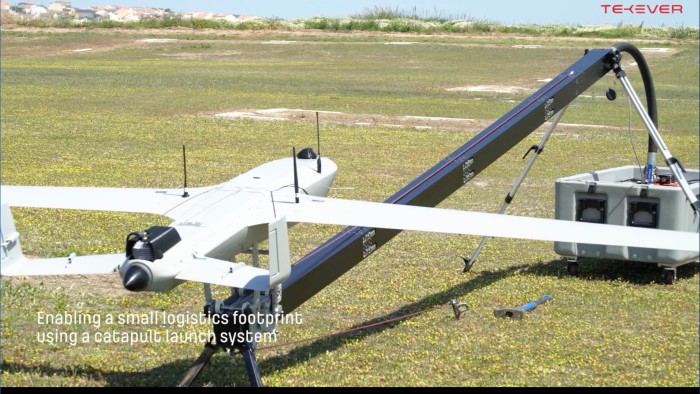Unlock the Editor’s Digest for free
Roula Khalaf, Editor of the FT, selects her favourite stories in this weekly newsletter.
European investors are putting hundreds of millions of euros into two surveillance drone companies, Quantum Systems and Tekever, in deals that value each of the defence technology start-ups at more than €1bn.
New investors are flocking to the market for defence or “dual use” technology, which can be used in both civilian applications and on the battlefield.
The latest rounds come as the makers of drones deployed in Ukraine’s war with Russia scale up production as Europe races to boost its defence capabilities, following the Trump administration’s threats to withdraw US military support in the region.
Munich-based Quantum Systems has raised €160mn led by Balderton Capital, in the London-based venture firm’s first defence tech investment, alongside strategic backers Hensoldt and Airbus Defence and Space.
The deal, which also includes existing investors including US venture capitalist and Palantir co-founder Peter Thiel, values Quantum at more than €1bn, according to people familiar with the terms.
“The goal is to make the battlefield transparent and have real-time aerial intelligence from every part of the front line,” said Florian Seibel, co-chief executive and co-founder of Quantum Systems. “You can only shoot if you know where to shoot. So you need eyes in the sky.”
Separately Tekever, which was founded in Portugal in 2001, said it raised tens of millions of euros from its existing investors, led by long-term existing backer Ventura Capital. Its new valuation is “beyond £1bn”, Ricardo Mendes, chief executive of Tekever, told the FT, but he refused to specify the exact amount raised.
Tekever last year raised €70mn in a round led by Baillie Gifford that was also backed by the Nato Innovation Fund.
Investment in European start-ups working on defence and related technologies jumped 24 per cent in 2024 to $5.2bn, according to figures from the Nato Innovation Fund and research group Dealroom.
Quantum’s technology brings together drone hardware, software and artificial intelligence to build autonomous systems for real-time “aerial intelligence”. Its products have been used by countries including Germany, Ukraine and the US.
After struggling to commercialise its drones in its initial target market of agriculture, Seibel, a former helicopter pilot in the German armed forces, decided to use commercial technology to take on traditional defence companies. “They are slow, they are expensive, they are arrogant,” he said. Its new product was ready just as Russia’s full scale invasion of Ukraine began in 2022.
Quantum generated €110mn in revenue last year and is on track to hit more than €200mn this year, Seibel said. It has production capacity in multiple countries to produce up to 4,000 drones a year in various configurations.
Rana Yared, general partner at Balderton Capital, said Quantum could “scale quickly” to become one of the leading lights of Europe’s defence tech industries.
Balderton wanted to invest in Quantum, which has more than doubled its annual revenue for the past several years, because of its diversity of customers and applications, which also include mining, infrastructure and emergency services.
“Our goal is to invest in companies that have great trajectories in a world that is highly peaceful,” Yared said. “It would be cavalier to invest in a company that only does well in this negative geopolitical [situation].”
Nonetheless, the battlefields of Ukraine have driven rapid growth for many defence tech start-ups, including Munich-based Helsing, which has raised hundreds of millions of euros.
Mendes said the war in Ukraine had made every government “in Europe aware that the nature of the technology being used in the field has changed”.
Demand has been such that Tekever has been “more than doubling” its production capacity every year. It expects to produce more than 200 systems this year. One of the biggest challenges, he said, is how quickly the industry can scale up.
Tekever, which also has operations in the UK, makes AI-enabled drones for surveillance and reconnaissance missions. Two of its drones, the AR3 and the AR5, have been used extensively in Ukraine, enabling precision strikes using real-time intelligence. Other customers include the European Maritime Safety Agency and the UK Home Office.
Mendes said its new funds would help Tekever, which is already profitable, to deliver on a pledge to invest £400mn in the UK over the next five years.




